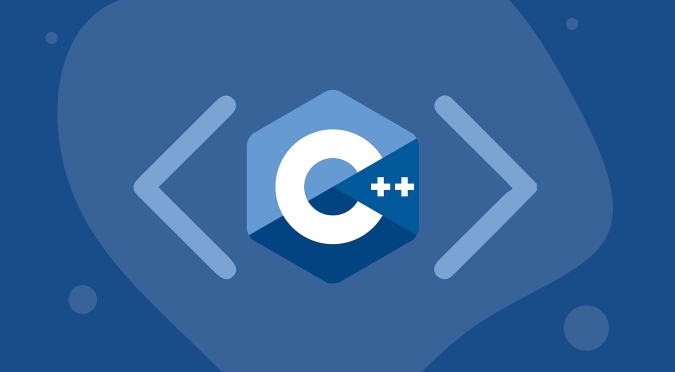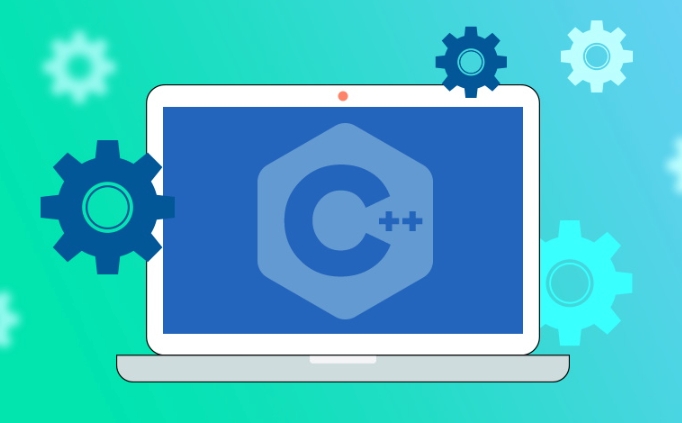What is Boost library in C
Boost is a widely used, peer-reviewed C library that extends the standard library with robust, cross-platform tools for tasks like memory management, file operations, networking, and more; 1) it provides rich functionality through components like boost::smart_ptr, boost::filesystem, and boost::asio; 2) it is highly portable and well-tested in production environments; 3) many of its features have influenced modern C standards; 4) most libraries are header-only, simplifying usage; 5) some require linking compiled binaries; 6) installation varies by platform but is supported via package managers or source builds; however, developers should consider its size, complexity, and the availability of standard alternatives before use, as modern C has adopted many Boost features, making it a powerful but optional enhancement to C development.

The Boost library in C is a large, peer-reviewed, open-source collection of high-quality, portable C libraries that extend the functionality of the C Standard Library. It’s often described as a "batteries-included" extension to C , providing tools and components that are not part of the core language or standard library but are widely useful in real-world applications.

Boost is developed and maintained by the C community and has had a significant influence on the evolution of C . In fact, many features now in modern C (like std::shared_ptr, std::optional, std::variant, and smart pointers) were first popularized through Boost before being adopted into the C 11, C 14, and later standards.
Why Use Boost?
While the C standard library is powerful, it doesn’t cover every need—especially for advanced programming tasks. Boost fills those gaps with robust, well-tested implementations. Here’s why developers use it:

- Rich functionality: Offers tools for smart pointers, regular expressions, threading, filesystem access, serialization, and more.
- Cross-platform: Works across different operating systems and compilers.
- High quality: Code is peer-reviewed and widely used in production environments.
- Influential: Many Boost libraries become part of future C standards.
Key Components of Boost
Here are some of the most widely used Boost libraries:
-
boost::smart_ptr
Providesshared_ptr,scoped_ptr, andweak_ptr— smart pointers that help manage dynamic memory safely. (Now largely superseded bystd::equivalents, but still relevant in older codebases.)
boost::filesystem
Enables portable file and directory operations (e.g., checking if a file exists, creating directories). This was later adopted into C 17 asstd::filesystem.boost::asio
A powerful library for asynchronous I/O, networking, and low-level system programming. Widely used for writing network servers and clients.boost::regex
Offers robust regular expression support, more advanced than the standard<regex></regex>in some cases.boost::serialization
Allows objects to be serialized into archives (text, binary, XML), useful for saving/loading program state.boost::thread
Provides threading and synchronization utilities. Much of this has been replaced bystd::threadsince C 11, but Boost.Thread still supports more advanced features.boost::program_options
Helps parse command-line arguments and configuration files easily.boost::lexical_cast
Simplifies type conversions (e.g., string to int) with a simple syntax:boost::lexical_cast<int>("123")</int>.
How to Use Boost
Most Boost libraries are header-only — you just include the header and compile your code. Some, like boost::asio or boost::serialization, require compiling and linking because they contain binary code.
Example: Using boost::lexical_cast
#include <boost/lexical_cast.cpp>
#include <iostream>
int main() {
try {
int num = boost::lexical_cast<int>("42");
std::cout << "Number: " << num << std::endl;
}
catch (boost::bad_lexical_cast& e) {
std::cerr << "Conversion failed: " << e.what() << std::endl;
}
return 0;
}To compile (assuming Boost is installed):
g -I /path/to/boost example.cpp -o example
For libraries that need linking (like boost::system or boost::thread), you’ll also link against compiled Boost libraries:
g example.cpp -lboost_system -lboost_thread -pthread
Installation
Boost can be installed in several ways:
Linux (Ubuntu/Debian):
sudo apt-get install libboost-all-dev
macOS (with Homebrew):
brew install boost
Windows:
Use vcpkg, pre-built binaries, or build from source usingb2.From source:
Download from //m.sbmmt.com/link/bdc087430791230685fcfa24acfc7ec0, then build with:./bootstrap.sh ./b2 ./b2 install
Caveats
- Size and complexity: Boost is huge. Including unnecessary parts can increase compile times.
-
Steeper learning curve: Some libraries (like
Boost.Spiritfor parsing) are complex and template-heavy. -
Not always needed: Modern C (C 11 and beyond) has absorbed many Boost features, so check if
std::alternatives exist first.
Boost isn’t part of the C standard, but it’s often called “the most important C library after the standard library.” It’s widely used in industries like finance, game development, and embedded systems.
So, while not strictly necessary, Boost makes C programming easier, safer, and more productive — especially when the standard library falls short.
The above is the detailed content of What is Boost library in C. For more information, please follow other related articles on the PHP Chinese website!

Hot AI Tools

Undress AI Tool
Undress images for free

Undresser.AI Undress
AI-powered app for creating realistic nude photos

AI Clothes Remover
Online AI tool for removing clothes from photos.

Clothoff.io
AI clothes remover

Video Face Swap
Swap faces in any video effortlessly with our completely free AI face swap tool!

Hot Article

Hot Tools

Notepad++7.3.1
Easy-to-use and free code editor

SublimeText3 Chinese version
Chinese version, very easy to use

Zend Studio 13.0.1
Powerful PHP integrated development environment

Dreamweaver CS6
Visual web development tools

SublimeText3 Mac version
God-level code editing software (SublimeText3)
 Using std::chrono in C
Jul 15, 2025 am 01:30 AM
Using std::chrono in C
Jul 15, 2025 am 01:30 AM
std::chrono is used in C to process time, including obtaining the current time, measuring execution time, operation time point and duration, and formatting analysis time. 1. Use std::chrono::system_clock::now() to obtain the current time, which can be converted into a readable string, but the system clock may not be monotonous; 2. Use std::chrono::steady_clock to measure the execution time to ensure monotony, and convert it into milliseconds, seconds and other units through duration_cast; 3. Time point (time_point) and duration (duration) can be interoperable, but attention should be paid to unit compatibility and clock epoch (epoch)
 What is a POD (Plain Old Data) type in C ?
Jul 12, 2025 am 02:15 AM
What is a POD (Plain Old Data) type in C ?
Jul 12, 2025 am 02:15 AM
In C, the POD (PlainOldData) type refers to a type with a simple structure and compatible with C language data processing. It needs to meet two conditions: it has ordinary copy semantics, which can be copied by memcpy; it has a standard layout and the memory structure is predictable. Specific requirements include: all non-static members are public, no user-defined constructors or destructors, no virtual functions or base classes, and all non-static members themselves are PODs. For example structPoint{intx;inty;} is POD. Its uses include binary I/O, C interoperability, performance optimization, etc. You can check whether the type is POD through std::is_pod, but it is recommended to use std::is_trivia after C 11.
 How to pass a function as a parameter in C ?
Jul 12, 2025 am 01:34 AM
How to pass a function as a parameter in C ?
Jul 12, 2025 am 01:34 AM
In C, there are three main ways to pass functions as parameters: using function pointers, std::function and Lambda expressions, and template generics. 1. Function pointers are the most basic method, suitable for simple scenarios or C interface compatible, but poor readability; 2. Std::function combined with Lambda expressions is a recommended method in modern C, supporting a variety of callable objects and being type-safe; 3. Template generic methods are the most flexible, suitable for library code or general logic, but may increase the compilation time and code volume. Lambdas that capture the context must be passed through std::function or template and cannot be converted directly into function pointers.
 What is a null pointer in C ?
Jul 09, 2025 am 02:38 AM
What is a null pointer in C ?
Jul 09, 2025 am 02:38 AM
AnullpointerinC isaspecialvalueindicatingthatapointerdoesnotpointtoanyvalidmemorylocation,anditisusedtosafelymanageandcheckpointersbeforedereferencing.1.BeforeC 11,0orNULLwasused,butnownullptrispreferredforclarityandtypesafety.2.Usingnullpointershe
 How to use OpenCV with C for image processing?
Jul 09, 2025 am 02:22 AM
How to use OpenCV with C for image processing?
Jul 09, 2025 am 02:22 AM
Using OpenCV and C for image processing is not complicated. You can quickly get started by mastering the basic process and common functions. 1. Installation and environment configuration: Ensure that OpenCV is installed correctly, Linux can be installed with package manager, Windows can use vcpkg or manually configure the path, and test whether it is normal through a simple program; 2. Basic operations of images: use cv::imread() to read, cv::imshow() to display, cv::imwrite() to save images, and pay attention to the necessity of path judgment and waitKey(); 3. Common image processing operations: including grayscale, Gaussian blur, Canny edge detection and threshold processing, which are usually used in the preprocessing stage; 4. Custom convolution kernel
 What is an abstract class in C ?
Jul 11, 2025 am 12:29 AM
What is an abstract class in C ?
Jul 11, 2025 am 12:29 AM
The key to an abstract class is that it contains at least one pure virtual function. When a pure virtual function is declared in the class (such as virtualvoiddoSomething()=0;), the class becomes an abstract class and cannot directly instantiate the object, but polymorphism can be realized through pointers or references; if the derived class does not implement all pure virtual functions, it will also remain an abstract class. Abstract classes are often used to define interfaces or shared behaviors, such as designing Shape classes in drawing applications and implementing the draw() method by derived classes such as Circle and Rectangle. Scenarios using abstract classes include: designing base classes that should not be instantiated directly, forcing multiple related classes to follow a unified interface, providing default behavior, and requiring subclasses to supplement details. In addition, C
 What is the mutable keyword in C ?
Jul 12, 2025 am 03:03 AM
What is the mutable keyword in C ?
Jul 12, 2025 am 03:03 AM
In C, the mutable keyword is used to allow the object to be modified, even if the object is declared as const. Its core purpose is to maintain the logical constants of the object while allowing internal state changes, which are commonly found in cache, debug counters and thread synchronization primitives. When using it, mutable must be placed before the data member in the class definition, and it only applies to data members rather than global or local variables. In best practice, abuse should be avoided, concurrent synchronization should be paid attention to, and external behavior should be ensured. For example, std::shared_ptr uses mutable to manage reference counting to achieve thread safety and const correctness.
 How to generate a UUID/GUID in C ?
Jul 13, 2025 am 02:35 AM
How to generate a UUID/GUID in C ?
Jul 13, 2025 am 02:35 AM
There are three effective ways to generate UUIDs or GUIDs in C: 1. Use the Boost library, which provides multi-version support and is simple to interface; 2. Manually generate Version4UUIDs suitable for simple needs; 3. Use platform-specific APIs (such as Windows' CoCreateGuid), without third-party dependencies. Boost is suitable for most modern projects, manual implementation is suitable for lightweight scenarios, and platform API is suitable for enterprise environments.








